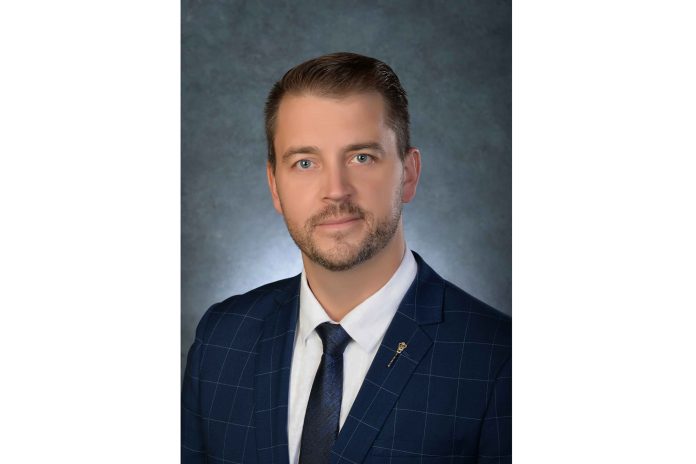
Rural and Remote Health Minister Tim McLeod made his first trip to Northern Saskatchewan as a cabinet minister on Tuesday, roughly one week after being appointed to cabinet for the first time.
The Moose Jaw North MLA is the only first time minister in Premier Scott Moe’s new cabinet. McLeod said Rural and Remote Health is an exciting portfolio, and one he’s happy to oversee.
“It’s got a lot of moving parts and a lot of people are directly impacted by the work within this ministry,” McLeod said during a phone interview on Wednesday. “I’m honoured to be asked to take the lead on it.”
McLeod visited the northern communities of Pinehouse and Dillon with Moe and Athabasca MLA Jim Lemaigre on Tuesday.
Recruiting and retaining healthcare personal has been a challenge for northern communities, a problem the province sought to rectify by increasing financial incentives. Previously physicians would receive $47,000 for working in the north. The government’s new policy will see new northern physicians receive a $200,000 incentive over five years for working in rural and remote communities.
The province is also offering a one-time incentive of $50,000 paid over three years to healthcare workers who filled a full-time permanent position in one of nine high-priority areas in rural and remote communities. The priority list includes registered nurses, nurse practitioners, continuing care assistants, and registered psychiatric nurses.
McLeod said he’s confident the current incentive plan is working as intended, but acknowledged there were still some holes to fill.
“We are seeing progress,” he said. “We know that there’s more work to do and that there are still positions that need to be filled, but we’re building off the successes that we’ve already seen, and confident that we’ll get to a place where those concerns are addressed.”
In Prince Albert, McLeod said the incentives have helped recruit 10 new registered nurses, three medical lab technologists, one licenced practical nurse, and one nurse practitioner. However, there have also been setbacks, with the Victoria Hospital inpatient child and youth psychiatric unit closing for the third time in three years due to a lack of psychiatrists.
McLeod said healthcare worker shortages aren’t unique to Prince Albert. They’re trying to recruit for similar positions across the province, and other provincial governments face similar challenges.
“We see a need for doctors and nurses and medical health practitioners across Canada and internationally,” he said. “We have the four-point Health Human Resources Action Plan. We are seeing significant benefits already from that plan, both with the recruitment, with the training, with the incentives. We think that the plan is working and will continue to show success.”
The province introduced the $60 million Action Plan in September 2022. As part of the plan, they added 100 new permanent positions, and converted 150 part-time positions to full-time.
McLeod said they will re-evaluate the incentive program once they hit their recruitment targets.
Provincial NDP leader Carla Beck blasted the province’s action plan during a stop in Prince Albert on Aug. 29. Beck said the temporary closure of the Victoria Hospital inpatient child and youth psychiatric unit was a sign the province was over-promising and under-delivering.
“The proof is in the closed beds that we see behind us – this is not an effective plan,” Beck told reporters outside Victoria Hospital.
“They keep saying they’re working on it, that things will get better, but that’s not what we see.”
In a statement released on Sept. 1, the Saskatchewan Health Authority said recruiting two new child psychiatrists for Prince Albert was a top priority.
According to a December 2022 report rom Saskatchewan’s provincial auditor, the SHA is projecting a shortage of 2,200 hard-to-recruit healthcare workers over the next five years.
In Fall 2022, the province also introduced a streamlined and accelerated training, assessment, and licensure pathway for internationally education nurses (IEN). As of May 2023, 19 continuing car assistants and two medical laboratory assistants had already arrived in from the Philippines. Another 53 IENs from the Philippines and nine IENs already residing in Saskatchewan were in the bridging program.
–with files from Jayda Taylor/Daily Herald

